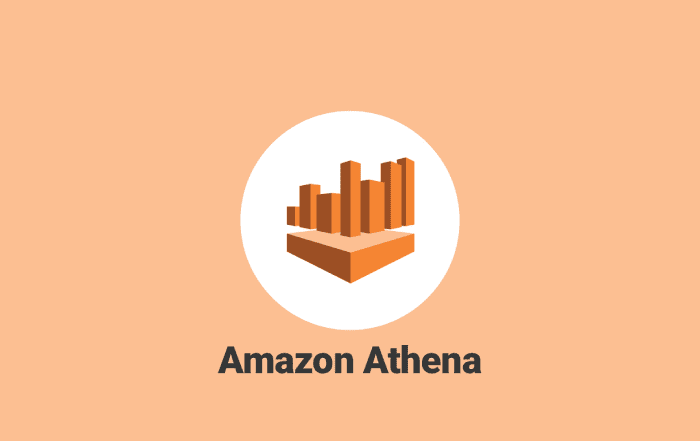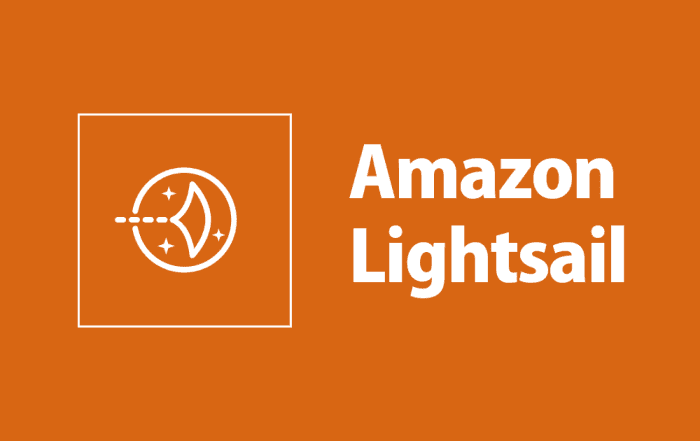
SEO is an art of making your blog stand out among the other similar platforms in the niche. The only way to do it in the modern realities is proving the search engines that it is worthy of being shown to people.
However, search engines themselves, Google, in particular, are not happy with SEO specialists trying to outsmart the existing algorithms in an attempt to promote their website. Therefore, they are continuously implementing new practices and rules that are changing the way optimization is carried out. Some of the tricks that used to be of the greatest potency are no longer effective.
However, below is the list of the 7 hot SEO tips and tricks that are currently the optimization staples. Read them and learn how to turn your website into the top platform according to search engines!
1- Build strong relationships with other blogs in your niche
SEO rankings are greatly affected by the number of backlinks your site gets. However, it is not that easy to get your blog or website linked. In order to gain some recognition, it is important to incorporate your networking skills into the SEO process and expand your area of influence.
If you want your small blog or website to be more popular, it will be helpful to reach out to those blogs or individual influencers that have already garnered their recognition in your industry.
You may start off by compiling a list of all the figures of authority in your industry that you could reach out to. If you want to optimize your website successfully, it is important to remember that in the process of selecting appropriate influencers you need to ensure they operate in the same niche as you. Then and only then will they linking your website be relevant.
However, it can be quite challenging to get big bloggers to work with your blog or website. Therefore, if you want to be featured on their platform you need to offer some value for them.
As you strengthen those connections, you will eventually be more likely to link each other’s blogs on a regular basis, which will have a positive effect on your rankings.
- Turn to the help of guest posting as a part of your SEO strategy
A good way of getting big and popular sites to link your blog is to write a guest post for them. To promote your website (or a particular post on your platform), you need to find an influential service in your industry and write an article for them where you could link your own website. A lot of websites allow that either in the body of the article (if the linked content is relevant) or some other place as a reward for submitting a piece of writing for them.
One way of creating solid bonds with other blogs and websites is by linking their content on your platform. Not only that will give them the credit that is due and improve your relationships with the authors of that content but will also show Google and other similar search engines what your platform specializes in. This, in turn, will make your posts of higher relevance to those who could be interested in them, and result in your blog or website being more visible to the people searching for the information in your niche.
However, you need to be extremely careful with the way you use this tip. While it is great to incorporate links to external sources in the content you post, it is extremely important to approach the process responsibly and not to overdo it.
You may hurt your Google link profile. Google works in such a way that every time it detects a backlink on your site, it adds it to your link profile. Every now and then, the system analyzes those logs to identify certain patterns and to subsequently determine what area your blog or website operates in. Based on the results of the aforementioned analysis, it will decide what user search requests your site will satisfy best, and show your platform only to those who could benefit from it.
Now, if you incorporate too many links, especially if those have little to no relevance to your niche and the topics you cover on your platform, you will end up having an inconsistent link profile that has no delineated focus. While this would increase the number of keywords your blog would correspond to, those ‘triggers’ would be too incoherent to make you the top search result. Instead of having a strong direction, you will be too spread out across a wide range of different keywords. This can be detrimental for your blog image and will send you to the bottom of search results, which in the modern realities where people rarely go any further than the second page of Google, will leave your blog or website unnoticed by your target audience.
In addition to that, if you try to outsmart Google algorithms by trying to organize some friendly link exchanges, you might end up being penalized for that since Google is actively trying to fight against blogs that do that. Therefore, while networking, it is vital that you value quality over quantity.
Read On-Page Elements You Should Never Forget For Your SEO
2- Sort out your keywords
A lot of people think that SEO is all about the keywords. Considering the fact search engines are continuously changing the rules and algorithms employed for website ranking, modern SEO is a bit more complex than that. However, it would not be fair to ignore the fact that keywords do, in fact, have a lot to do with website optimization. If you want your blog or website to come up on Google among the top search results, you need it to fit your target audience’s search requests.
Therefore, the first thing you need to figure out before you even start planning out your blog content is to identify the keywords that will be relevant to your niche and are frequently used by your target audience.
You need to carry out a bit of research to understand what your target audience is interested in so that you could form a list of keywords to incorporate into your blogs.
However, just like with backlinks, it is absolutely vital that you do not overuse those. At the early stages of SEO practices just adding a bunch of keywords into your content was enough to get you noticed. Today, nonetheless, everything has changed. It is widely believed that Google hates keywords, and while this statement is a slight exaggeration, it is best if you put some thought into the way you include your buzzwords into the content you post.
Google penalizes those websites that turn to keyword-stuffing, a practice that refers to the process of overloading your texts with keywords to the point they become unreadable. It ranks such posts low and marks as unhelpful. Therefore, you need to always remember that you are writing your content for actual real people and not bots. The most important thing to remember is that your texts have to flow naturally.
In order to ensure that your content ticks the aforementioned boxes, it will be good to proofread it before posting and eliminate repetitions of the keywords. However, it does not mean that you cannot still keep your focus. You may paraphrase your keywords to still have relevance to the topic you cover but not be considered spammy.
Besides, expanding your keywords range could be a good idea, too. Apart from mentioning only those terms that people search the most, you may add some other variations that would be relevant to the main keywords.
3- Provide answers to the questions your target audience is interested in
In addition to the aforementioned point, always remember that you publish your content for your audience and not for the bots. Therefore, you need to take their preferences into consideration when blogging.
It is essential that you understand exactly what your audience wants and how to deliver them that. In fact, people rarely search in keywords but rather ask search engines certain questions they struggle to answer themselves. Hence, if you want Google to mark your website as a helpful and high-quality one, you need to be addressing those questions and answering them in your posts.
In addition to that, you shall also focus on creating high-quality, valuable content that people would talk about. This goes back to backlinks as the internet users are more likely to link something that was worthy of their attention than average posts that were made only to appeal to the search engine algorithms.
4- Make sure to use the appropriate tools for SEO
You do not have to do all of the aforementioned manually. There are a lot of various useful tools that make the process of website optimization significantly easier.
First of all, you need to identify the main processes you need to work on and find the appropriate tools that would enable you to do that.
Some of the best tools to get you started with SEO are:
- Google Keywords Planner. This tool is irreplaceable for those carrying out the preliminary research of relevant keywords. You may simply insert the keywords you intend to use, and Google will provide you with a rough estimate of the traffic you will yield from using those. As well as that, it will also show you the statistics for associated keywords so you could select the ones that fit best.
- SEMRush. This tool helps you to run a check on your competitors and see their SEO rankings as well as provides you with the keywords that would be relevant to your topics.
- Ahrefs. This tool is a must for analyzing link profiles of your site and the sites of your competitors.
5-Brush up your basic SEO knowledge as it can make a lot of difference in the long run
If you follow the tips outlaid earlier in this article, you should be all set with the concept of keywords and how to choose them. However, all the knowledge is useless if you do not know how to implement it correctly.
If you want to maximize your results from optimizing, you need to be sure that you are using all the keywords appropriately.
- The first thing to know is that you need to take any chance given to amp your ranking. Therefore, do not forget to change your URLs. Instead of them being a random string of numbers and letters, you can get them to act them in your favor and become SEO-friendly. In order to do that, you need to include your target words into it so both search engines and users would recognize your website as a relevant one.
- Meta-title plays a huge role in allowing the search engine to determine the topic of your page.
- Headings and sub-headings make your posts more readable and therefore appear to be of a higher quality.
- Images and other visual content. While search engine bots cannot recognize images, they do see the tags connected with those. Therefore, if you want to even further promote your website and add extra keywords, make sure to take your time describing the images you add to your posts.
6- Interlinking is a game-changer when it comes to SEO for blogs and websites
If you have been running your website or blog for a while, it is likely that you have accumulated a considerable amount of posts in your portfolio. Moreover, if you are operating in one niche, they are possibly touching similar subjects and discuss some overlapping ideas.
If that is the case, you need to make sure that you build strong connections between the posts within your website or blog.
First of all, the creation of such a web of content all of which is interlinked will help the search engines to identify the overall topic of your platform. Secondly, it will likely keep the visitors of your site engaged with the platform for longer as they will be jumping from one post to another.
However, you need to make sure that your interlinking is robust. Not only do you want to link your old content in your newer posts, but you should also revise your old posts and include links to your newer posts in there, too. By doing so, you will ensure crosslinking.
7- Fill your blog or website with the content that will be irresistible to link
As it has been mentioned at the beginning of this article, in order to rank higher and eventually become the top search result, you need people and other websites to link your website.
One of the best ways to do it is by creating a linkable asset. In other words, you need to incorporate some valuable content into your site that would be extremely helpful to others and would be credited a lot. Some of the things that make good linkable assets include the following (but are not limited to these):
- A free tool or app;
- Ultimate guideposts;
- Infographics;
- Case studies etc.
As you can see, the process of optimizing your blog or website is quite strenuous and requires a lot of attention. However, if you are creative, innovative and hard-working, you can easily make your platform flourish!
The author Lilian O’Brien Currently serves as an editor for onlinechatdatingsites.com.








